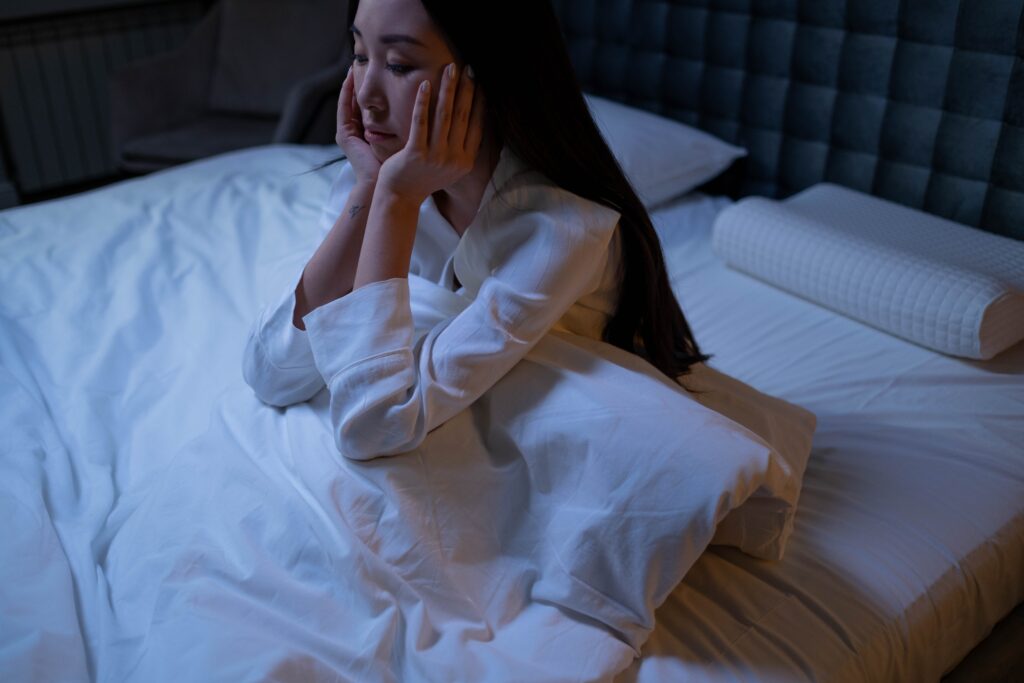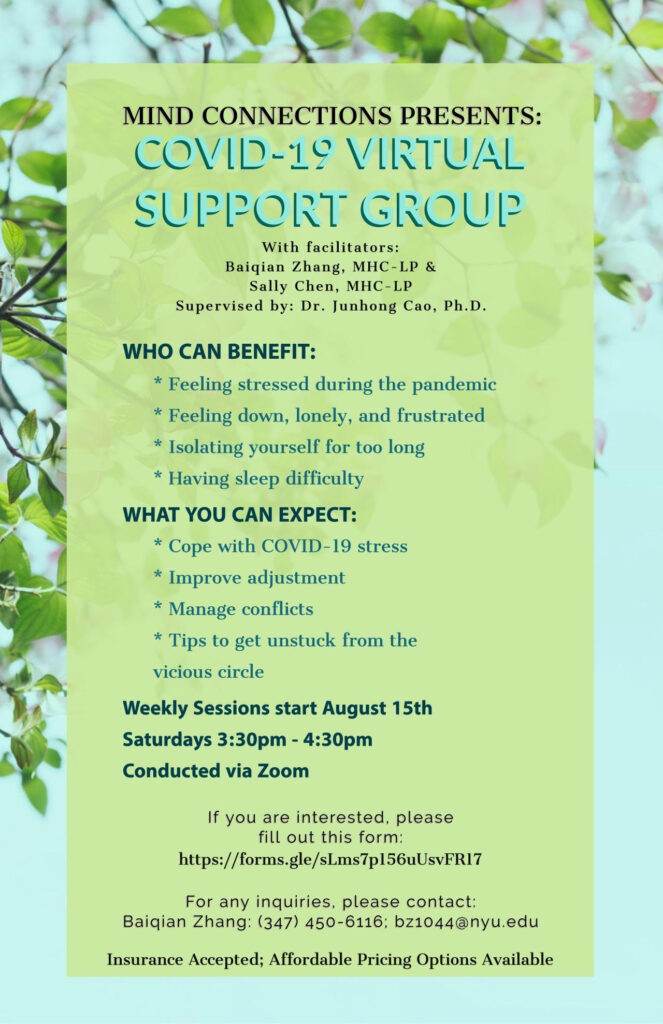We are in the second year of this pandemic. Can you believe that it has been two years since COVID took over our lives and the world? This may be a difficult time for you and you may be experiencing pandemic stress – please know that you are not alone. Recent studies show that 47% of people reported feeling stressed amongst other difficult emotions.
We are living through a worldwide pandemic – who would have ever thought this would have happened? Sometimes, it feels like we are living in a chapter of a history textbook. The positive side of that perspective is that, just like we have read in history textbooks, different generations of people survived challenging times and eventually moved ahead to a new chapter. The world’s future is unknown for now; we need to take things day by day. This, however, doesn’t invalidate any of the stress you may be feeling. This article can help you deal with this stress and hopefully make you feel a little bit safer in these challenging times.
What the Pandemic Has Done to the World:
Unfortunately, it may be hard to remember a time before COVID. It has affected so many parts of our day and has changed how we live our lives. It can be jarring when you look back at old pictures and see how you used to live. There may be many times when you look back on a photo and think to yourself, “I can’t believe I wasn’t wearing a mask!” We are now very accustomed to wearing masks and keeping our distance from people.
Let’s Explore Some of the Other Ways the Pandemic Has Affected This World:
Distanced Us from Other People and Increased Isolation

The phrase “six feet apart” has infiltrated our lives. You may see this phrase on signs, placemats on the floor, or instructions. The distance you may feel is not only shown in this measurement; it is also evident in our lives in many different ways. The pandemic might have distanced you from the people you love.
You may not see your friends or family often in fear of getting sick. You may be fearful that you will expose your older relatives and, for example, haven’t seen your grandma in over a year. COVID has promoted significant isolation in people. People report feeling lonely and scared during these times. Especially with remote work and school, it is hard to meet people nowadays. Kids who go to school online may feel isolated from their friends and find it hard to make connections.
If you work remotely, you may have never even met your co-workers! It is all very isolating and makes it hard for us as social beings to navigate this world.
Created a Division in Our Society
This world feels divided in so many ways already, and the pandemic has only made it worse. You may know people who have strong beliefs on how to handle the pandemic – you either disagree or agree with them. People’s differing beliefs and actions during this pandemic have caused strife amongst us. You may have a friend that doesn’t believe in wearing a mask or getting vaccinated, and you may think the complete opposite. These vast differences cause people to argue, lose touch, and could even ruin their relationship altogether. In a study from 2021, 88% of Americans reported feeling like their nation was divided, even more than before the pandemic.
Made us Fear Doing Mundane Tasks
It’s crazy to think that we could go to the store or go to the movies without even a second thought a few years ago. Now to do such mundane tasks, there is a lingering thought of, “Will I get sick when I go out?”
People are fearful when doing things that would have seemed so simple before 2020. Some people have become afraid of leaving their house because even the slightest task may make them fearful of getting sick. Agoraphobia might occur in people with this constant stress. These people fear that something terrible will happen to them when they are not in the comfort and security of their own homes.
Prevented Us From Living Our Lives
People who enjoy concerts, festivals, or packed events might feel like they cannot safely do that anymore. If you consider yourself adventurous, you might struggle a lot during this pandemic. Concerts have been delayed or canceled, traveling seems impossible, and you may fear going to crowded spaces because of COVID. Many people, especially teens or people in their early twenties, fear that they are wasting their “golden years.” It can be hard to feel like you aren’t missing out on important milestones when this pandemic is taking over.
Cause Immeasurable Loss in Our Lives
The pandemic may have created loss in your life in many ways. People have become unemployed from the pandemic and have been laid off. So many places like hospitals and schools are understaffed. This causes people who work at these understaffed places to take on an increased workload and face immense stress. This stress can cause burnout and people to question if they can even do their job anymore. It feels like they have to choose between making a living or ensuring their wellbeing.
The pandemic may have also taken loved ones from you. COVID may have affected your loved ones and caused them to pass away. This loss may be challenging for you to deal with and makes you extremely upset during these times. Even if COVID has not taken a close loved one from you, it has likely affected so many people you know.
Ways to Deal with Pandemic Stress
First, Check-in With Yourself Daily
It can be hard to navigate immense pandemic stress and challenging times. Make sure that you check in with yourself and see how you feel each day. Some days, you may feel more hopeful and happy in life, and there may be other times when you feel discouraged and sad.
Know that your emotions are valid, and you should embrace them instead of ignoring them. Try journaling about how you feel and making a note of which days are harder than others. When you have a bad day, you can look back on the days that you were happy and find hope that you will feel this way again.
Second, Do Things That Make You Happy

If you check in with yourself and feel upset, try to do something that’ll make you happy. Think about what you enjoy doing. You may enjoy watching a particular show or movie. There may be an album that always brings a smile to your face or gives you a sense of calmness. A hobby can be a great way to release your thoughts and immerse yourself in a creative project.
Another way you can make yourself happy and avoid pandemic stress is by reaching out to people. Social support and finding someone that you can rely on is a healthy way to deal with stress during the pain.
Third, Lean on social support
As mentioned in the prior section, social support is critical during this time. In an age where people feel very isolated and alone, it is essential to rely on people you can trust. You may be fearful of seeing others and feel more comfortable at home, but this does not have to prevent you from socializing. Try implementing Zoom or FaceTime calls with people. You can text your friends and send each other fun videos or pictures.
There are also apps where you can meet people and make new connections. Another way to do so is by joining a new club or class. If you don’t want to go in person, many organizations meet online and do virtual meetings.
Fourth, Turn to Mindfulness in Times of Stress
Mindfulness helps people find peace when experiencing pandemic stress or anxiety. You can practice mindfulness by:
- Doing a guided meditation video
- Practicing yoga or stretching
- Completing a breathing exercise
- Taking part in a guided imagery exercise
Mindfulness can also be practiced through accepting your situation. Living through COVID is not ideal and can be very difficult. However, learning to accept these times and this period of your life can help you find peace. Once you feel calmer, you can focus on ways to improve your situation.
Fifth, Encourage Yourself to Get Through Pandemic Stress
Remember: You have survived 100% of your worst days! Remember this when you feel down. Even in the worst moments of your life, you have been able to push through and be where you are today. You have resilience and strength living in you! Try to remind yourself that these times will pass, and you will feel hope and optimism once more.
Ways to Encourage Yourself:
- Recite positive affirmations; positive affirmations can help you feel good about yourself and life. These affirmations are ways to attract things you want in your life and promote positivity inside of you.
- You can say: I am…calm, safe, happy with the connections I have in my life, going towards the right direction, facing my fears, etc.
- Get inspired by people from the past: you can encourage yourself by thinking about the past generations. There have been many periods in history that were hard for people to deal with, for example, the Great Depression. You may have grandparents or great-grandparents that lived through this time. This was a time when people were very sad and absent of hope. Seeing people get through these challenging times can motivate you to do the same.
- If you are fortunate enough to have some of these relatives alive still, go to them for advice or guidance
- Remember that we are resilient, and humans can adapt to way more than you think. Rely on strength from your ancestors, and remember that they are rooting you on!
Sixty, Don’t Do Things that Make You Uncomfortable
There have been many ups and downs during this pandemic. When there is a surge in cases, you may feel even more stress than usual. This can cause you to avoid going out to crowded places or doing certain activities. Check-in with yourself, as mentioned before, and see how you are feeling. If you feel like you don’t feel safe and a specific plan would cause you anxiety, don’t feel obligated to do it. If someone is peer pressuring you to do something that makes you uncomfortable, that is not okay! Listen to your intuition and honor your comfort level. Your boundaries matter, and you deserve to feel safe! If you decide to go out, try to be safe by wearing your mask and keeping your distance.
Seventh, Consider Going to Therapy for Pandemic Stress

Unfortunately, many people are experiencing depression and pandemic stress during these years. You do not deserve to struggle alone! A therapist can help you get through these times, provide support, and guide you in finding hope once again. Our team of therapists would love to help you! Our team will help you with depression, anxiety, self-esteem, and any other problems you may be facing.





